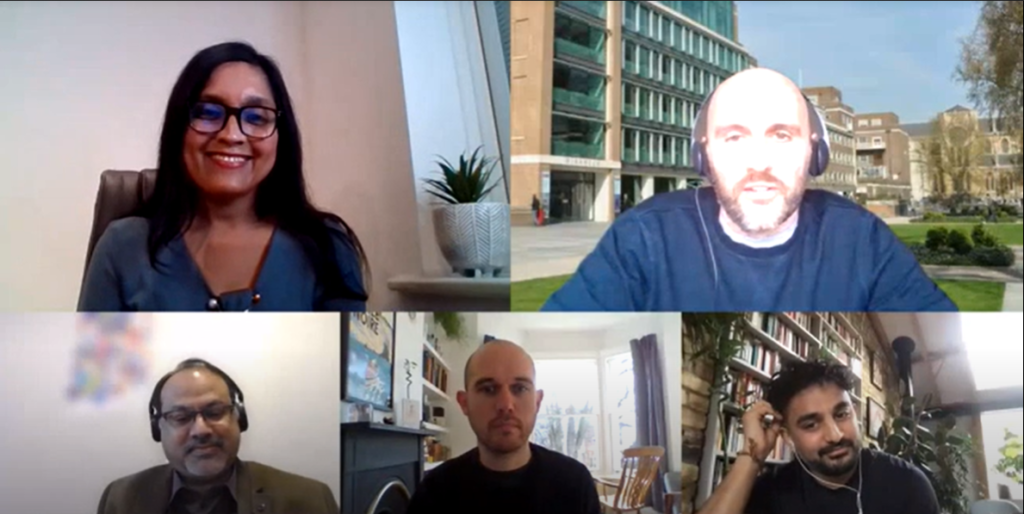In the Department of Management’s second Meet the Editor session, attendees heard from four inspiring academic speakers on how to publish in prestigious journals and the key pitfalls to avoid.
Editors of the top journals are tasked with reviewing thousands of papers, so how can you ensure that yours makes it past initial review and has a higher chance of getting published?
At the second of the Department of Management’s Meet the Editor sessions – chaired by Dr Muthu De Silva, Director of Research – Dr Geoff Walters, Executive Dean, School of Business Economics and Informatics welcomed Dr Dermot Breslin (International Journal of Management and Essex Business School), Professor Martyna Sliwa (Management Learning and Essex Business School), Professor Savvas Papagiannidis (Technological Forecasting and Social Change and Newcastle University Business School) and Dr Mohammad Faisal Ahammad (British Journal of Management, Journal of Management Studies and Leeds University Business School) to share their insight.
This session was very well attended by 75 scholars around the world.
Through this interactive session, a number of key considerations for authors were discussed:
Tailor your article to the journal and never resubmit to a different journal without revising substantially
It goes without saying that articles should be tailored for a specific journal, but all presenters were in agreement that a quick way to get your submission rejected is to make it obvious that it has been submitted elsewhere first. Speakers emphasised that even if authors are resubmitting a paper to a different journal, it is essential to ensure that the article is tailored for this resubmission, as it is obvious when this is not the case.
Understand the scope of your chosen journal
To make it less likely that you will need to resubmit your article, it is important to understand the scope of different journals. For example, does your chosen journal publish literature reviews? Does your article ‘fit’ with the type of content that the journal has published in the past? Does it offer a new perspective on these issues? Taking the time to effectively target and understand your chosen journal will lead to a more successful submission.
Address any issues raised by editors and reviewers
Dr Mohammad Faisal Ahammad shared some useful insights from his experience of having papers reviewed, accepted, revised, and rejected. He noted that taking the time to respond to reviewer comments in detail led to a much greater acceptance rate. Use this response as an opportunity to highlight the contribution made by your paper and take the time to address concerns raised by reviewers in a way that makes the process as easy as possible for them. He -using a few examples-, clearly outlined strategies to adopt to successfully address common comments made by reviewers (e.g. motivation, common method bias and endogeneity issues etc)
Support journals by becoming a reviewer
Several speakers commented on the value of becoming a reviewer as a way to support journals and gain insight into this process. Becoming a reviewer is often a stepping stone to membership of an editorial board, so it is well worth considering the commitment.
We would like to thank Dr Breslin, Professor Sliwa, Professor Papagiannidis and Dr Ahammad for their time during this highly informative session. All are welcome to join us for our upcoming Meet the Editor events:

